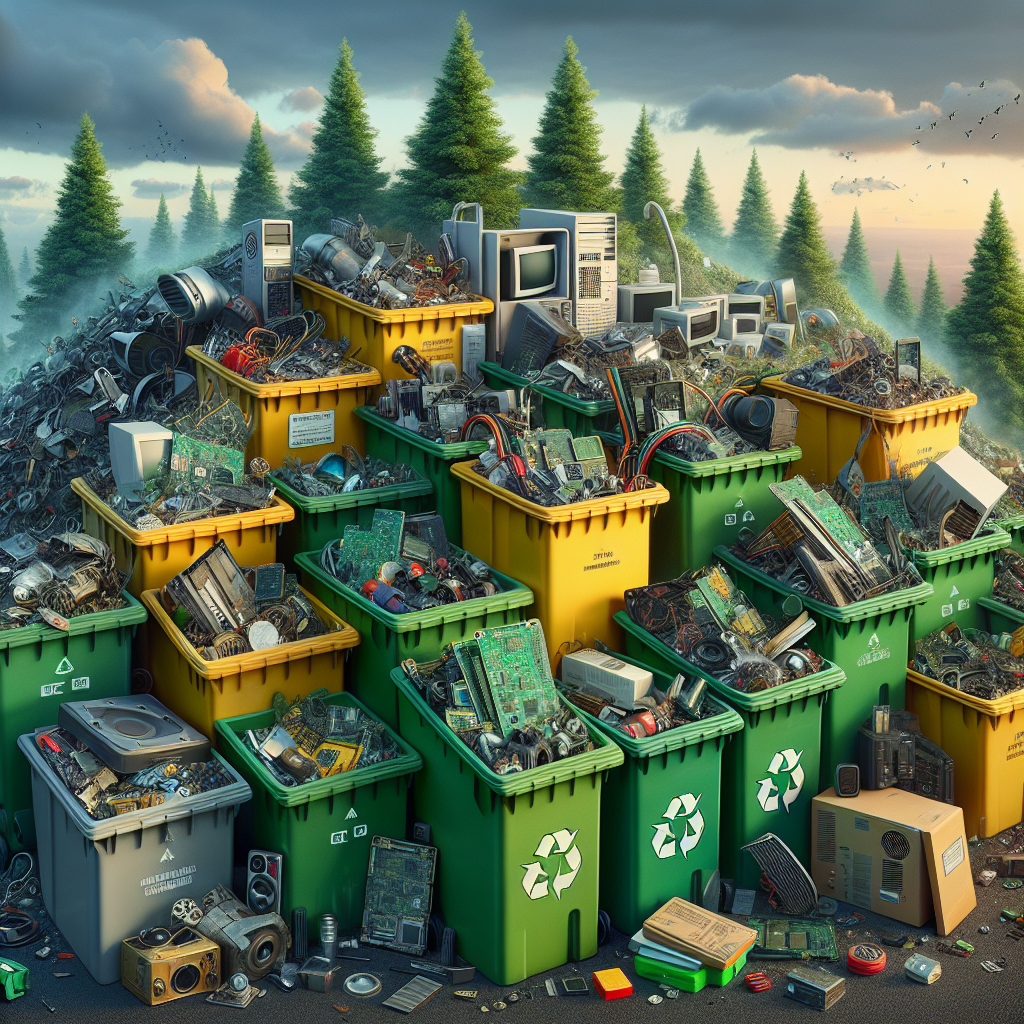Blog Ecobraz Eigre

How to Properly Dispose of Electronic Waste and Help the Environment
Introduction to the Proper Disposal of Electronic Equipment
Improper disposal of electronic equipment poses a significant risk to the environment and public health due to the presence of heavy metals and toxic components. To mitigate these impacts, it is essential to follow technical guidelines and current regulations for proper disposal, as established by the National Solid Waste Policy (Law No. 12,305/2010) and related regulations.
Applicable Legislation for the Disposal of Electronic Equipment
Law No. 12,305/2010 establishes the National Solid Waste Policy, which provides for the integrated management and environmentally appropriate handling of solid waste, including electronic waste. The legislation assigns shared responsibility among the generator, the public sector, and regulatory bodies to ensure reverse logistics, selective collection, and proper treatment of these wastes. SINIR (National Information System on Solid Waste Management) offers monitoring and control guidelines for managing these materials (sinir.gov.br).
Technical Procedures for the Disposal of Electronic Equipment
For proper disposal, it is initially recommended to identify electronic equipment that is no longer useful. End-of-life equipment must undergo specialized collection processes to prevent environmental contamination. The electronic waste collection must be carried out by certified institutions and in compliance with the technical requirements set forth in current legislation.
Proper packaging of the waste is crucial. Equipment must be stored in specific packaging that ensures physical integrity, preventing leaks and contamination during transport to treatment centers.
Sanitization and Safe Disposal of Storage Devices
Storage devices, such as hard drives (HD) and digital media, require special attention to guarantee the protection of sensitive information and prevent data leakage. Hard drive sanitization is a mandatory technical procedure that ensures complete elimination of content before disposal.
This process contributes not only to information security but also to environmentally appropriate disposal, following the technical guidelines recommended by NIST (National Institute of Standards and Technology) (nvlpubs.nist.gov).
Environmental Impacts of Improper Disposal and the Importance of Reverse Logistics
Improper disposal can cause soil contamination, groundwater pollution, and harmful emissions to the environment. Components such as lead, mercury, and cadmium, present in electronic boards and batteries, are highly toxic and persistent. Reverse logistics is a legal mechanism to ensure that electronic waste returns to the production cycle or is treated in an environmentally responsible manner, minimizing impacts.
Recommendations for Decision-Makers and Environmental Management Professionals
To optimize electronic waste management, it is recommended to:
- Implement internal disposal policies in accordance with legislation;
- Use certified processes for equipment collection and treatment;
- Ensure the safe sanitization of storage devices;
- Promote training and awareness about environmental risks and information security;
- Regularly monitor legislation and updates from SINIR and regulatory bodies.
By following these guidelines, professionals contribute to environmental protection, legal compliance, and information security.
Conclusion
Proper disposal of electronic equipment is essential to reduce negative environmental impacts and ensure the integrity of confidential information. Compliance with legislation, use of certified collection processes, and proper sanitization of hard drives are fundamental practices to promote sustainable development and responsible management of electronic waste.

Deixe um comentário
O seu endereço de e-mail não será publicado. Campos obrigatórios são marcados com *